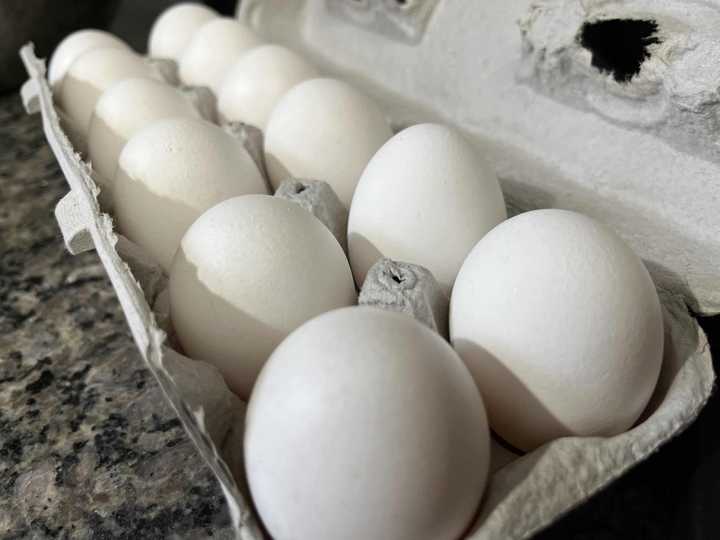Nationally, loose, large white eggs dropped $0.26 to $3.00 per dozen. In California, prices slid by $1.13 to $6.05, and in the Midwest, the drop was even steeper at $1.20. New York’s rate held steady at $3.86 per dozen.
Still, shoppers shouldn’t expect instant relief at the register: “Wholesale price changes can take up to three weeks to be reflected in the retail dairycase,” the USDA said.
That means it could be mid-April before you see lower prices on store shelves.
Demand is picking back up ahead of Easter, the USDA said.
“The recent sharp decline in wholesale prices has renewed marketer interest,” the USDA said, as grocers work to replenish stocks. “Consumers are once again seeing fully stocked shelves and enjoying a range of choices without purchase restrictions”
The drop in prices comes after a brutal start to 2025, when a deadly bird flu outbreak — officially Highly Pathogenic Avian Influenza (HPAI) — killed more than 30 million egg-laying hens across nine states.
Ohio was hit hardest, losing 13.3 million hens, or 32% of its flock, according to the USDA. Of the total losses, 64% were from caged flocks, 36% cage-free, and less than 1% organic
Despite the losses, cage-free farms have grown by 3% this year.
Overall egg demand is improving too, with the USDA reporting that product movement into marketing channels is “limited in the near-term with a focus on the approaching Easter demand period.”
Egg processors are running at their highest levels since December, as manufacturers look to take advantage of falling prices.
For now, eggs remain more expensive than in years past — but the trend is headed in the right direction.
Click here to follow Daily Voice Delran and receive free news updates.


